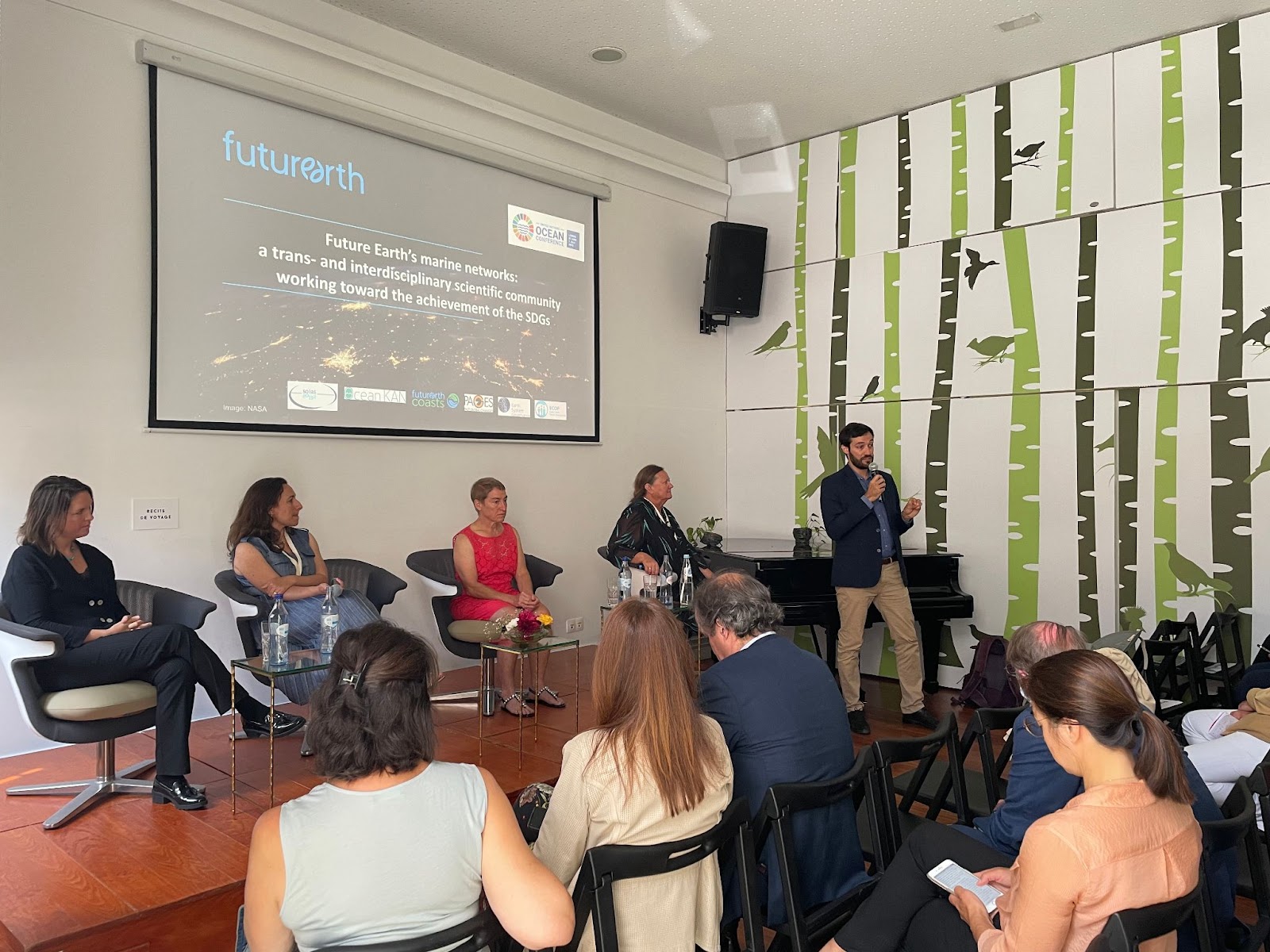SDG 14 in Focus at Future Earth Side Event at UN Ocean Conference
Convened by the United Nations General Assembly and co-hosted by the Governments of Kenya and Portugal, the “United Nations Conference to Support the Implementation of Sustainable Development Goal 14: Conserve and sustainably use the oceans, seas and marine resources for sustainable development” was held from 27 June to 1 July in Lisbon, Portugal. The overarching theme of the conference was “Scaling up ocean action based on science and innovation for the implementation of Goal 14: stocktaking, partnerships and solutions.”
More than 6,000 participants, including 24 Heads of State and Government, and over 2,000 representatives of civil society attended the conference to address the call for urgent and concrete actions to tackle the ocean crisis. From rising sea levels and marine pollution to ocean acidification and habitat loss. The ocean, the planet’s largest biodiversity reservoir and carbon sink is in jeopardy and the key roadmap for global action on life below water, Sustainable Development Goal 14, is threatened to derail progress.
The conference closed with the adoption of the Lisbon Declaration, with more than 150 countries collectively agreeing to scale up science-based and innovative actions to address the ocean emergency.
That week, Future Earth hosted a well-attended side event: Future Earth’s marine networks: a trans- and interdisciplinary scientific community working toward the achievement of the SDGs. The event brought together nearly 60 oceanographers, researchers, government officials, NGO representatives and civil society members on site and online. Expert panelists from the Global Research Networks included representatives of Future Earth Coasts, International Integrated Marine Biosphere Research project (IMBeR), the Ocean Knowledge Action Network (Ocean KAN), the Surface Ocean – Lower Atmosphere Study (SOLAS), the Task Force on Ocean Governance of Earth System Governance (ESG), Past Global Changes (PAGES) Arctic Cryosphere Change and Coastal Marine Ecosystems (ACME) working group and the Early Career Ocean Professionals (ECOP) Ocean Decade Programme.
Each group first presented their research and recent achievements. Then, along with the audience, we tried to answer the question, “Why is Future Earth well positioned to help achieve SDG 14?”
The side event led to interesting discussions about fostering collaboration among research groups and institutions, including new partners in the Future Earth’s projects and increasing transdisciplinarity to tackle the challenges ahead of us.
You can watch a recording of the event, moderated by Clément Brousse in which the panelists discuss the importance of trans- and interdisciplinary collaboration in achieving the SDGs.

Photo courtesy: Leigh Martens Winiger
DATE
August 12, 2022AUTHOR
Clément BrousseSHARE WITH YOUR NETWORK
RELATED POSTS
Future Earth Members Join UN Ocean Conference in Barcelona
Future Earth Experts Contribute to “10 Must Knows” as a Guide to Preserving Biodiversity
Earth Commission Co-chair Joyeeta Gupta Appointed to the UN Group of Ten High-Level Representatives